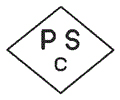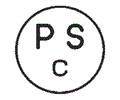When importing food into Japan, the following topics often become problematic in relation with Japanese laws:
Food Sanitation Law
1 General Information
The Food Sanitation Law regulates importing food, additives, utensils, containers and packaging, toys for infants, and cleaning detergents. Therefore, importers of these products need to pay attention to the Food Sanitation Law. For the definition and scope of each term, please refer to the following table.
|
Food
|
All food and beverages. However, this does not include pharmaceuticals, quasi-drugs, and products for regenerative medicine.
Therefore, health foods that do not fall under the category of drugs or quasi-drugs are included as ‘Food’.
|
|
Additives
|
The term “food additives” means substances that are added to, mixed with, infiltrated into, or otherwise used in food in the process of manufacturing food or for the purpose of processing/preserving food.
There are four types of additives:
(1) designated additives (= additives designated by the Minister of Health, Labor and Welfare, such as sorbic acid and xylitol),
(2) existing additives (= additives listed in the list of existing additives),
(3) natural flavors (= additives obtained from plants and animals or mixtures of plants and animals which is additives of natural origin that are used for the purpose of flavoring foods)
(4) general food and beverage additives
|
|
Utensils
|
Utensil for eating and drinking, Kitchen utensils, and other utensils used for collecting, manufacturing, processing, cooking, storing, transporting, displaying, or consuming food or additives. This also includes machine, apparatus, or other object that comes into direct contact with food or additives. However, this shall not include machines, appliances, and other objects used for the collection of food in agriculture and fisheries.
|
|
Eating and drinking utensils
|
Plates, teacups, cups, bowls
|
|
Cooking utensils
|
Knives, cutting boards, pots, iron plates, iron nets
|
|
Others
|
・Collection equipment (ice saws) ・Manufacturing and processing equipment (hand noodle machines/ice cream freezers/cabbage slicers/Agricultural product washing machine and fish processing machine/factory conveyor belt, pipes and hoses/ovens)・Cooking equipment (rice cookers/steamers/whiskers/ juicers)・Storage equipment (refrigerators/tanks/bottles/water bottles)・Transport equipment (milk tankers/concentrated fruit juice tank containers), display equipment (food baskets/trays/ display shelves), food containers/Styrofoam container boxes), eating utensils (knives/forks/spoons)
※Items that do not come into direct contact with food or additives, such as motors, air conditioners, and degassing pumps, are not included.
|
|
Containers
And
Packaging
|
“Containers and packaging” mean articles containing or wrapping food or additives, which are delivered as they are when food or additives are given or received. Packaging includes bottles, cans, bags, plastic bottles, boxes, and wrapping paper for food and additives.
|
|
Infant Toys
|
Toys for infants under the age of 6. Specifically, it refers to (1) toys that are essentially intended for infants to come into contact with their mouths, and (2) accessory toys, shadow graph(写し絵), roly-poly toy, mask, origami, rattles, intellectual toys (those that may come into contact with the mouth), building blocks, telephone toys, animal toys, dolls, clay, vehicle toys, balloons, flock toys, Balls, Toys for playing house.
|
|
Cleaning Detergent
|
This term refers to cleaning agents that are used for cleaning vegetables, fruits, or eating and drinking utensils.
|
2 Import notifications
When a business operator imports (1) food or additives, (2) equipment or packaging containers for these items, or (3) toys for infants and young children to be used for sale or in business, the business operator must submit an import notification and undergo an examination at a quarantine station to determine whether there is any violation of the Food Sanitation Law. In other words, import notification is required for the importation of food and other products for business and sales purposes.
However, there are exceptions. First, import notification is not required for cleaning detergents.
Second, foods that fall under any of the following categories do not require import notification. This is regardless of whether or not they are intended for sale or business.
|
Raw salt / Copra / Animal and Vegetable fat oils used in the manufacture of edible oils and fats/ Brown Sugar / Crude distilled alcohol / Molasses /Malt / Hops
|
Third, import notification will not be required for imports of (1) food and additives, (2) equipment and packaging containers for these items, and (3) toys for infants and toddlers that are not used for sale and are not used in the course of business. For example, in the case of (1) food for personal use, display, testing and research, or internal review, (2) food weighing 10g or less, or (3) food of which it is clear that the entire amount imported will be re-exported, if it is clear that the purpose is not to sell or use as food in Japan, import notification is not required. However, even in the case of importation by an individual, importation for the purpose of sale or for use in a restaurant run by the individual is not recognized as personal use, and import notification is required.
Fourth, import notification is not required for utensils and containers and packaging that do not come into direct contact with food.
3 Application for Import Notification and Notification of Changes
Applications for import notification are accepted at the quarantine office seven days prior to the scheduled arrival of the cargo. The quarantine station where the procedures are carried out depends on the region where the import is cleared. Use of the “How To” guide on “How to fill out the import notification form” can be helpful. The relevant documents to be attached depend on the items to be imported, so it is useful to consult with the quarantine station in advance, but according to the Tokyo Quarantine Office, documents that can confirm “when”, “where”, “what”, and “how” they are made are required. In addition, documents that can confirm compliance with the Food Sanitation Law may be requested. Specifically, depending on the item, it may be necessary to attach a “description of its ingredients and production process” (for processed food), a “hygiene certificate” (for meat, meat products, pufferfish), or a “test report” (for items with individual standards).
In addition, when there is a change in the date of arrival of the cargo, the name and address of the manufacturer, exporter or packager, the name and flight number of the ship or aircraft carrying the cargo, the name of the warehouse where the cargo is stored, and the date of delivery as stated in the import notification, notification of the change is required.
There is also a system to simplify the items to be entered and the documents to be attached at the time of import, by registering in advance the item’s ingredients, additives, production methods, and test reports.
4 Notification of imports based on the planned import system
The planned import system is a system that allows importation of the same food without import notification for a certain period of time after the submission of the import notification, by submitting an import notification stating the import plan at the time of initial importation. The following table shows items that are subject to the planned import system. As a general rule, identity is judged based on whether the place of manufacture, raw materials, and manufacturing method are the same, but for grains (rice, barley, wheat, soybeans, and hollyhocks), identity is judged based on whether they are produced in the same country, and there are exceptions as well.
|
Machinery for food production, aluminum utensils/ containers and packaging, stainless steel utensils/ containers and packaging/ colorless glass utensils/ containers and packaging
|
3 years
|
|
Alphanized rice/ ethyl alcohol/ barley/ canned and bottled foods (excluding meat products and fruit wine)/ Alcoholic beverages (except fruit wine)/ Sorghum bicolor (こうりゃん)/ sesame/ wheat/ rice/ safflower seeds/ spirits/ food (excluding meat products) which have been put into airtight containers and packages, sealed, and then pressured and heat-sterilized (excluding canned and bottled foods)/ Vegetable protein/ buckwheat/ soybeans, starch (excluding tapioca starch), animal fats and oils (excluding fish and marine mammal fats and oils)/ rapeseeds/ sunflower seeds/ corn/ rye/ containers and packaging other than those made of aluminum, stainless steel, colorless glass or synthetic resin,
|
1 year
|
|
The following food, additives, or containers and packaging, which have been imported continuously since before the submission of the import notification stating the import plan prescribed in Article 32, paragraph 4, and the same food, has not fallen under any of the items of the same paragraph [i.e., food whose import is prohibited] for three years prior to the date of submission.
Bean jam/temporarily stored fruits and rinds/ ground coffee beans/ boiled locusts/ fish roe (limited to dried ones)/ boiled fish/ fats and oils of fish and sea mammals,/ oatmeal/ seaweeds/cacao beans (excluding grounded ones)/ Ingredients for fruit wine/ frozen food for consumption after heating (meaning frozen food that has been manufactured or processed and requires heating when served for eating or drinking)/ Gymnema tea/ ingredients for fruit juice
Grain/ bean or potato powder/ cocoa products (excluding powdered soft drinks)/ Coffee extracts/ coffee beans (excluding those that are infused), corn flakes, konjac jelly(こんにゃく)/ salt/ plant-based creamer powder/ vegetable fats and oils/ shortening/ sake/ tea/ chocolate/ sugar/ eucommia tea/ boiled beans/ boiled beehives/ honey with beehives/ breads/ bread mix/ beer/ margarine/ yerba mate/ sweet sake/ noodles/ boiled vegetables/ vegetable puree and paste/ Frozen fruits (excluding manufactured or processed frozen fruits)/ Frozen vegetables (excluding manufactured or processed frozen vegetables), Additives other than those listed in Appended Table 1 of the Food Sanitation Act Regulations/ Food containers and packaging made of synthetic resin
|
1 year
|
Reports on actual imports during the planned import period must be submitted on an annual basis. In the event that an accident occurs during planned importation, it is necessary to promptly submit an “Accident Occurrence Report” to the food monitoring counter of the quarantine station in charge of the place where the cargo is to be cleared.
5 Examination of import notification based on the Food Sanitation Law
In the examination of import notifications, documentation is first examined, and if it is determined that an inspection is necessary, then an inspection is conducted.
If the inspection reveals that the product is in violation of the Food Sanitation Law, it will be rejected and no import license will be issued, and the quarantine office will instruct the customer to dispose of the product or return it to the warehouse. On the other hand, if no violation of the Food Sanitation Law is found, the product will pass the test and a notarized seal will be affixed to the import notification based on the Food Sanitation Law.
6 Document Screening
In the document screening, the following points will be checked to ensure that the necessary application documents and attached documents are not missing. Also, whether an inspection is necessary or not will be examined as well.
|
①Meat, milk and organs of animals (cattle, horses, pigs, sheep and goats)
②Poultry meat and organs (chickens, ducks, turkeys)
③ Products containing ① and ② (meat products, milk, dairy products)
|
Items to be used for sales may not be imported without a sanitary certificate or a copy thereof from the government agency of the exporting country.
In United States, Australia, and New Zealand, hygiene certificates issued electronically are also accepted.
|
|
①Meat and organs of animals and livestock (cattle, horses, pigs, sheep and goats)
②Meat and organs of poultry (chicken, duck, turkey)
|
Products for sale may not be imported unless they are manufactured or processed in “a country designated by the Minister of Health, Labor and Welfare”.
The scope of “countries specified by the Minister of Health, Labor and Welfare” is defined in “countries, regions, or facilities specified by the Minister of Health, Labor and Welfare pursuant to the provisions of Article 11, paragraph 1 of the Food Sanitation Act.
|
|
Raw Oysters
|
A sanitary certificate from the government agency of the exporting country is required.
In addition, since the examination will be conducted based on the “Handling of Imported Edible Oysters,” it is useful to check that as well.
|
|
Puffer Fish
|
A sanitary certificate from the government agency of the exporting country is required. The inspection will be conducted in accordance with the “Handling of Imported Pufferfish” and the “Guidelines for the Inspection of Imported Pufferfish.” There are restrictions on the types of pufferfish that can be imported and the waters where they can be fished, and these will also be checked during the document review.
|
|
Tar-based pigment
|
It is prohibited to sell, display for sale, or use in business any product that has not been inspected by a registered inspection agency and has not been labeled as having passed the inspection. Therefore, the food inspection report may be checked by document examination.
|
7 Types of inspections based on the Food Sanitation Law
There are four types of inspections based on the Food Sanitation Law:
|
|
Inspection
|
Expense’s burden by
|
Remarks
|
|
Ordered Inspection
|
Registered Inspection Agency
|
Importers
|
Ordered inspections are inspections conducted based on an order issued by the Minister of Health, Labor and Welfare when there is a high possibility of violating the Food Sanitation Law.
Violation of the inspection order is subject to criminal penalties. The results of the inspection will be sent directly to the quarantine station. In order to understand the types of cases in which inspection notices are issued, the notices of implementation of inspection orders published on the website of the Ministry of Health, Labor and Welfare can be used as a reference.
|
|
Guided Inspection
|
Registered Inspection Agency
|
Importers
|
Guided inspections refer to inspections conducted based on where the government provides guidance to business operators. As part of the importer’s voluntary sanitation management, the government provides guidance to the importer on the implementation of periodic inspections (Including the first import)
|
|
Administrative Inspection
|
Quarantine Station
|
Administrator
|
This is an inspection conducted when the administration finds it necessary to determine whether there is a violation of the Food Sanitation Law. The inspection is conducted by the food sanitation inspector of the quarantine station, such as when the product is first imported, when a violation of the law is found, or when an accident occurs during transportation.
|
|
Monitoring Inspection
|
Quarantine Station
|
Administrator
|
This is an inspection conducted by the government based on an annual plan for monitoring, regardless of whether or not there is a suspected violation of the Food Sanitation Law. Unlike other inspections, the operation is such that a notified certificate is issued even before the results of the inspection are available, but if a violation of the law is found, the importer is required to promptly take measures such as recalling the product.
|
8 Items to be confirmed by inspections based on the Food Sanitation Law
During the inspection, the following points will be checked and guidance will be given as necessary:
・Check if the food or additive is unhygienic
・Check if it contains any additives other than designated additives, existing additives, natural flavors, and general food and beverage additives
・Check if the food, additive, apparatus, container or packaging, or infant toy in conformity within the “standard criteria”. In addition, “Standards for Foods and Additives”, “Standards for the Production of Foods and Additives Using Recombinant DNA Technology”, and “Ministerial Ordinance on the Standards for the Ingredients of Milk and Milk Products” have been established as “Standards for Foods and Additives”.
・Check if food items contains residues of agricultural chemicals (agricultural chemicals, feed additives, veterinary drugs) above the standard value.
・Check if apparatus, containers and packaging contains or adheres toxic/hazardous substances that are likely to damage human health by
・Check for utensils, containers, or packaging that may harm human health by coming into contact with food or additives and give harmful effect human health.
・Check if the imported food is prohibited by the Food Sanitation Law or not.
In addition, when importing food containing cyanide compounds, the “Handling of Food Containing Cyanide Minerals” seems to apply.
9 Quarantine based on the Food Sanitation Law and quarantine based on other laws and regulations
In addition to inspections (quarantine) based on the Food Sanitation Law, quarantine based on other laws, such as the Plant Protection Law and the Livestock Infectious Disease Prevention Law, may be required depending on the goods to be imported, but these quarantines are based on different laws and must be considered separately.
10 Customs Clearance
A notification of importation of food, with a notarized seal affixed (“notarized certificate”) or a copy thereof is required at customs clearance, .
In cases where import notification is not required, but import verification is required by customs, an application for verification shall be submitted to the quarantine station.
11 Self-Management for Food Imports
Importers of processed food are subject to the “Guidelines for the Voluntary Control of Imported Processed Food (Guidelines)”.
12 Sale of Food Products
In some cases, a business license or business notification based on the Food Sanitation Law or ordinances (such as the Tokyo Metropolitan Government’s “Food Manufacturing Control Ordinance” or Hokkaido’s “Sanitation Ordinance for Food Manufacturing and Sales”) may be required for sales in Japan. In addition, revision of the Food Sanitation Law, which will come into effect on June 1, 2021, has significantly changed the framework for business licenses.
Food Labeling Law
Food for sale (including food for free to unspecified persons) is subject to food labeling standards under the Food Labeling Law. Selling food that is not labeled in accordance with these standards and giving food away for free to an unspecified number of people is also prohibited.
In addition, when recalling food that is not labeled with allergens in accordance with the Food Labeling Standards, a notification to that effect must be submitted.
Please contact us if you have any questions.


